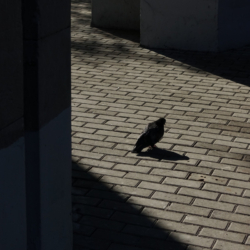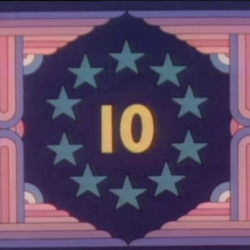At the same time, I suspect the traditional vidui has suffered from being engaged through a moralistic lens where acknowledging sins is about getting ourselves to act differently through wronging/shaming/blaming. I lament this greatly. I lament the great pain and suffering we bring on ourselves and others in this mode and great missed opportunity for an organic learning and growth by coming into contact with the pain of our sins. Sins in the original sense of חטא, of missing the mark, of acting and being in ways that oppose life instead of serving it. The kind of regret that can come from this type of honest self-reckoning can actually be beautiful and poignant, humanizing and helping us get in touch with deeper commitments with which we’ve fallen out of line. To that end, I offer some suggestions for reflection using the traditional vidui:
Vidui means acknowledgment. It is not about self-flagellation or blame, but about honesty, coming into contact with our lives, our patterns and experiences, and ultimately about teshuva and learning. In contacting the pain and suffering which our modes of being have given rise to, our regret can help us to willfully divest ourselves of them and awaken the yearning for those modes of being which are life-affirming, supportive of wholeness, connection, integrity, and flourishing. With each one we tap on our heart, touching the pain and closed-heartedness we have caused, and simultaneously knocking on the door that it may open again.
אשמנו |
We have become guilty. What do you feel guilty about? What is it that you value that you wish you had acted in alignment with? |
בגדנו |
We have put clothes on integrity, covering what is true. Notice the duality and suffering of this betrayal. |
גזלנו |
We have robbed/stolen. Where have we not honored others’ property and creations? Where have we imposed ourselves in others’ domains? |
דברנו דפי |
We have spoken slander. We have the gift of voice and communication. When have we created suffering by misusing it? |
העוינו |
We have caused perversion. Where have we taken the potential for the good and holy, ours and others’, and steered it otherwise? |
הרשענו |
We have villified. What have our enemy images created in our hearts and our world? |
זדנו |
We acted from malevolence. In what ways has our pain consumed and dominated us, leading us to act from revenge and grudge? |
חמסנו |
We have acted violently. Woe unto us, let us know the suffering to ourselves and others. |
טפלנו שקר |
We have accused falsely. Where have we overstepped and judged? Seen with narrow eyes? |
יעצרנו רע |
We gave divisive advice. Where has our advice given rise to divisiveness and conflict? Where were we rooted in so speaking? |
כזבנו |
We have been deceitful. Where have we hidden the truth from ourselves or others? What realities and relationships has that created? |
לצנו |
We have scorned. We have not looked to the heart of what motivates people, we have seen through the jaded lens of our own defenses and pain, alienating ourselves and others. |
מרדנו |
We have rebelled. We have lost touch with what is good, wholesome, life-serving, and in our confusion chosen paths and strategies that don’t affirm life. Let us see this, understand what we are needing, and choose more wisely. |
נאצנו |
We have taunted. Where have we missed others’ vulnerability and shored up our own insecurities at their expense? |
סררנו |
We have turned away. What suffering has come from our aversion? What/whom have we abandoned? |
עוינו |
We have twisted/distorted. Where have we foregone sincerity? Where have we engaged the other as an ‘it’? |
פשענו |
We have acted wantonly. See the destruction we cause when we don’t act care-fully. |
צררנו |
We were hostile. Where have we acted our of our own inner knots? How has that worked out? |
קשינו עורף |
We’ve been stiff-necked. What is it that we’re wanting under our intransigence? How is this stubbornness serving that? |
רשענו |
We have done wickedly. Where has divisiveness obscured inner potential and goodness? |
שיחתנו |
We have corrupted. Where have we been too hard for purity to sustain? |
תעבנו |
We have caused revulsion. What are we bringing into the world? Where, from an objective stance, would we shudder at what we have done and been? Let us shudder at the distance and discrepancy from our deeper values. |
תעינו |
We have strayed. Life can be radically vibrant, connected, God-infused, kind, inspired, sacred- where have we become estranged from this? |
תעתענו |
You have let us go astray. Alone we are nothing. In-Spire us again, en-Thuse us anew, give us the guidance and grace to do teshuva and live the possibility for which You gave us life. |
This meditation in vidui was first published by Danny Cohen on his Facebook page, here.

“ודוי | Vidui meditation, by Danny Cohen” is shared through the Open Siddur Project with a Creative Commons Attribution-ShareAlike 4.0 International copyleft license.










Leave a Reply